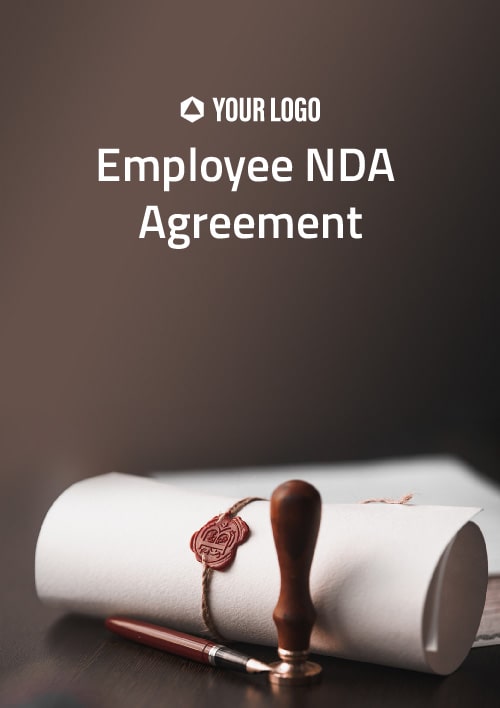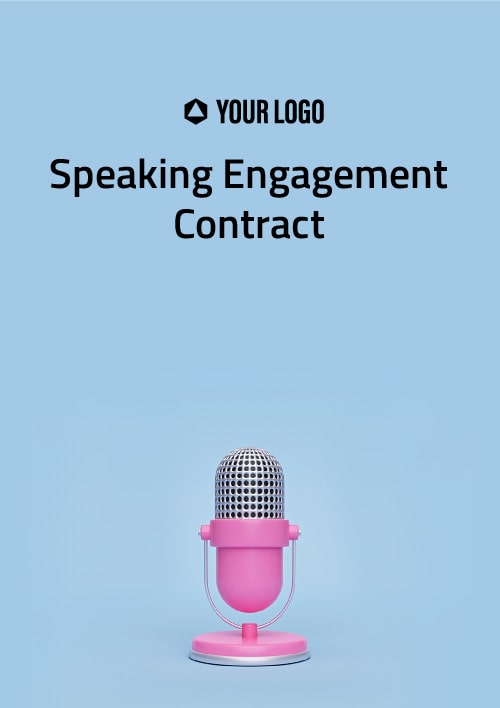Empty space
1x
2x
3x

Freelance Artist
Contract
Prepared for:
[Client Company]
Prepared by:
[Freelance Artist Name]
Freelance Artist Contract
Freelance Artist Contract
This Freelance Artist Contract (hereinafter referred to as the "Contract") is made and entered into on [Date]
By and Between
The [Client Name], (hereinafter referred to as the "Client"), having its place of address [Address], and;
The [Freelance Artist Name], (hereinafter referred to as the "Artist"), having its place of address [Address].
The Client and the Artist are collectively referred to as the "Parties" and individually as "Party."
WHEREAS the Client requires freelance artist services for the [Project] (hereinafter referred to as "Project")
AND WHEREAS the Artist desires to provide the services to the Client.
NOW, THEREFORE, in consideration of the mutual covenants contained herein, the Parties hereto agree as follows.
Empty space
1x
2x
3x
Terms and Conditions
Terms and Conditions
1. Project Description
1. Project Description
The Client hereby agrees on the Artist for the aforementioned Project. The Artist agrees to render the services at the request of the Client for the fees agreed upon. The Artist further agrees to use reasonable efforts and care to ensure that the facts and statements in the work are true and accurate. The Artist shall co-operate with the Client in editing and reviewing the project before the completion.
2. Confidentiality
2. Confidentiality
During the term of this Contract, the Client shall share information including trade secrets, industry knowledge, and other confidential information to the Artist in order to complete the project. The Artist shall not disclose any of the shared information at any time to third parties or for personal benefit.
3. Termination
3. Termination
This Contract shall be terminated upon the Client's acceptance of the deliverables and once the payment is received by the Artist. This Contract can be terminated anytime by either Party upon written notice to the other Party. Upon termination of this Contract, the Artist shall return all the materials, copies of deliverables to the Client.
4. Ownership Rights
4. Ownership Rights
The Client continues to own any information shared with the Artist during the term of this Contract. The Artist has no rights to this information and shall not use it anywhere else except to complete the services.
5. Representations and Warranty
5. Representations and Warranty
The Artist represents and warrants to have a right to enter into this contract and perform the services. The Artist agrees and further represents that the work created is not owned by anyone else without the Artist's knowledge. In the event the Artist does not have any rights, the Artist shall repay the damages associated with the project.
The Client represents and warrants to have a right to use information including trade secrets, trademarks, logos, the content of the website. In the event the Client does not have any rights, the Client shall pay the necessary damages associated with the project;
6. Payment
6. Payment
All the fees shall be invoiced upon receiving the deliverables by the Client, an amount of [Amount]. If the Client wishes to alter the work beyond the included edits, then an extra amount shall be charged for the same. The mode of payment shall be cash/card/online transfer or any other mode of payment as discussed between the Parties.
7. Miscellaneous
7. Miscellaneous
- Severability: In the event any provision of this Contract is deemed to be invalid or unenforceable, in whole or part, that part shall be severed from the remainder of this Contract, and all other provisions shall remain in full force and effect as valid and enforceable.
- Notices: Any notices required or permitted by this Contract shall be in writing and delivered by certified mail or courier to the above-mentioned address.
- Governing Law: The Parties agree that this Contract shall be governed by the laws of [State]. In the event the Parties do business in different states, this Contract shall be governed by the laws of [State].
- Entire Contract: The Parties acknowledge that this Contract sets forth and represents the entire Contract between both the Parties. In the event that the Parties are willing to change/add/modify any terms, they shall be in writing and signed by both the Parties.
Empty space
1x
2x
3x
Acceptance and Signature
Acceptance and Signature
IN WITNESS THEREOF, the Parties agree to the terms and conditions set forth above as demonstrated by their signatures as follows:
[Client]
[Artist]
Signature
Assign signer 1
Name
Assign signer 1
Date
Assign signer 1
Signature
Assign signer 2
Name
Assign signer 2
Date
Assign signer 2
Empty space
1x
2x
3x
DISCLAIMER: Revvsales, Inc is not a law firm. The content provided herein is for general information purposes only, and does not constitute legal advice. Revvsales, Inc and its partners make no representation or warranty of any kind, express or implied, regarding the accuracy, adequacy, validity, reliability, availability, or completeness of any information mentioned hereunder. The use or reliance of any information contained herein is for your personal use and solely at your own risk. You agree to fully release and indemnify Revvsales, Inc from any liability associated with the use of this content. You are advised to obtain independent legal advice before taking or refraining from any action on the basis of the content provided here.
DISCLAIMER: Revvsales, Inc is not a law firm. The content provided herein is for general information purposes only, and does not constitute legal advice. Revvsales, Inc and its partners make no representation or warranty of any kind, express or implied, regarding the accuracy, adequacy, validity, reliability, availability, or completeness of any information mentioned hereunder. The use or reliance of any information contained herein is for your personal use and solely at your own risk. You agree to fully release and indemnify Revvsales, Inc from any liability associated with the use of this content. You are advised to obtain independent legal advice before taking or refraining from any action on the basis of the content provided here.















